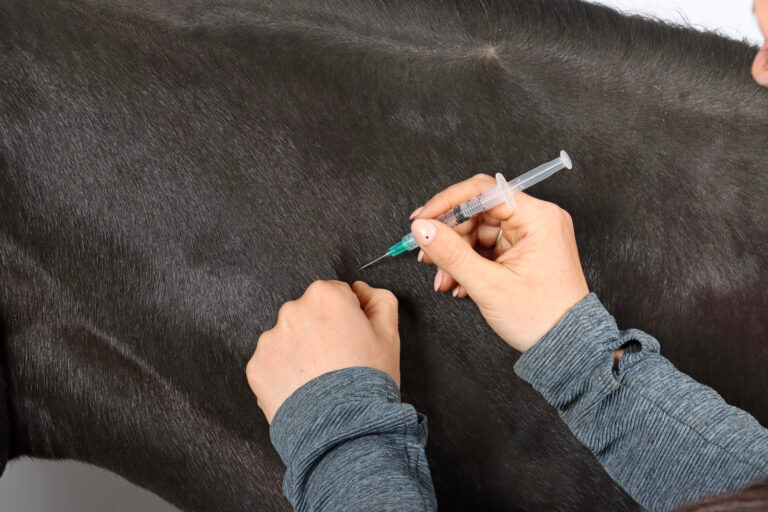
While EIA is an uncommon occurrence, it is becoming somewhat more prevalent in racing Quarter Horses and bush-track racehorses. There also have been cases springing up across North America.
At the 2017 North American Veterinary Conference, Erin Groover, DVM, DACVIM, presented a case study on a horse with EIA. She reported that possible clinical signs that lend suspicion to an EIA infection include:
- hemolytic anemia
- icterus
- fever
- lethargy
- weight loss
- etechial hemorrhage
- distal limb edema
- pale mucous membranes
- inappetance
These clinical signs could be attributed to a variety of differential diagnoses: purpura hemorrhagica, autoimmune disorders, equine viral arteritis virus, neoplasia, liver disease or internal abscesses.
Running a Coggins test or ELISA test on blood can quickly rule EIA in or out.


![[Aggregator] Downloaded image for imported item #18395](https://s3.amazonaws.com/wp-s3-equimanagement.com/wp-content/uploads/2025/09/30141538/EDCC-Unbranded-23-scaled-1-768x513.jpeg)
![[Aggregator] Downloaded image for imported item #18808](https://s3.amazonaws.com/wp-s3-equimanagement.com/wp-content/uploads/2025/11/06141153/EDCC-Unbranded-17-scaled-1-768x512.jpg)
